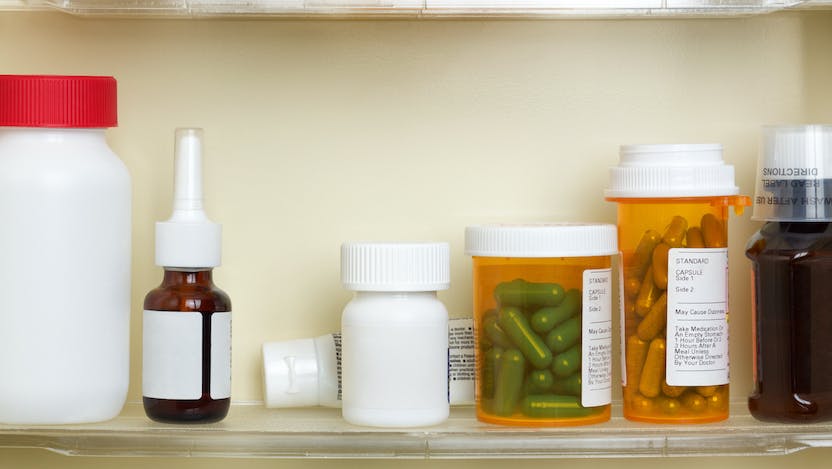Poison prevention: What to know

Poisoning is a leading cause of unintentional injury deaths in people under 19 years old, and just under half of all poison exposures occur in children under 6 years of age.
Poison exposures include accidental drug overdoses, breathing dangerous fumes, and ingesting toxic plants and chemicals. With such a wide variety of causes, the prevention of accidental exposures takes many forms.
National Poison Prevention Week is the third week of March, and we encourage you to inspect your home and surrounding environment for potential causes.
If someone is unconscious or having difficulty breathing, call 911 immediately. If you suspect poisoning, call the Illinois Poison Center at 1-800-222-1222.
Below are some safety tips to help create a healthy home.
Medications
- Keep all medications out of the reach of children.
- Never refer to medications as 'candy.'
- Keep prescription medications in their original labeled, childproof containers.
- Avoid using pill organizers, as they are easy to open and make it difficult to determine which pill is missing if a child or someone else tampers with them.
- Dispose of old medications at regular intervals by taking them to your pharmacy's medication drop-off box.
- Follow dosage limits for age and weight when giving your child medicine.
Household Cleaners and Other Products
- Many household cleaners and products, like laundry detergent pods, are packaged in bright colors and have pleasant smells, which makes them tempting to kids.
- Keep all household cleaning products safely stored and away from children.
- Make sure cabinets have safety latches to prevent access to these products by children.
- Never mix chemicals together, as they may create hazardous gasses and combinations.
- Never re-use these containers. When they are empty, rinse them well, and recycle.
- Never use rat or ant poisons in play areas.
- Cosmetics, perfumes, hand sanitizers, and mouthwash can also be poisonous. Keep them safely stored and out-of-reach from children.
Plants
- There are many plants that can be toxic when eaten. Names of common hazardous plants can be found on the Illinois Poison Center’s website (illinoispoisoncenter.org)
- If your child eats an unknown plant, take a photo of the plant with your phone, so accurate identification of the plant is possible by a professional.
Gases and Fumes
- Never warm up your car in a garage or other enclosed space.
- Do not use a barbecue grill indoors.
- Regularly check to see that your smoke and carbon monoxide alarms are working. If you smell natural gas, evacuate the area, and call 911. Do not light any matches or turn on the stove. Do not flip any electrical switches.
Batteries
- Keep coin and button batteries safely stored and out-of-reach from children. Products that use these types of batteries, including remotes controls and flameless candles, should also be safely stored away from kids.
Recreational Products
- E-liquids (vape fluid) often come in bright colors and packaging that can be confused for candy. Keep e-cigarettes and e-liquids out-of-reach from children. Never ingest e-liquids.
- THC edibles are packaged like non-THC candies. Keep these products out-of-reach from children.
- Never leave cups, bottles, or other containers with alcohol unattended.
- Always clean out ashtrays.
About the Authors
Matt Louzon, CPST, is the program coordinator for the University of Chicago Pediatric Injury Prevention Program.
Michael Wahl, MD, is the medical director of the Illinois Poison Control Center

